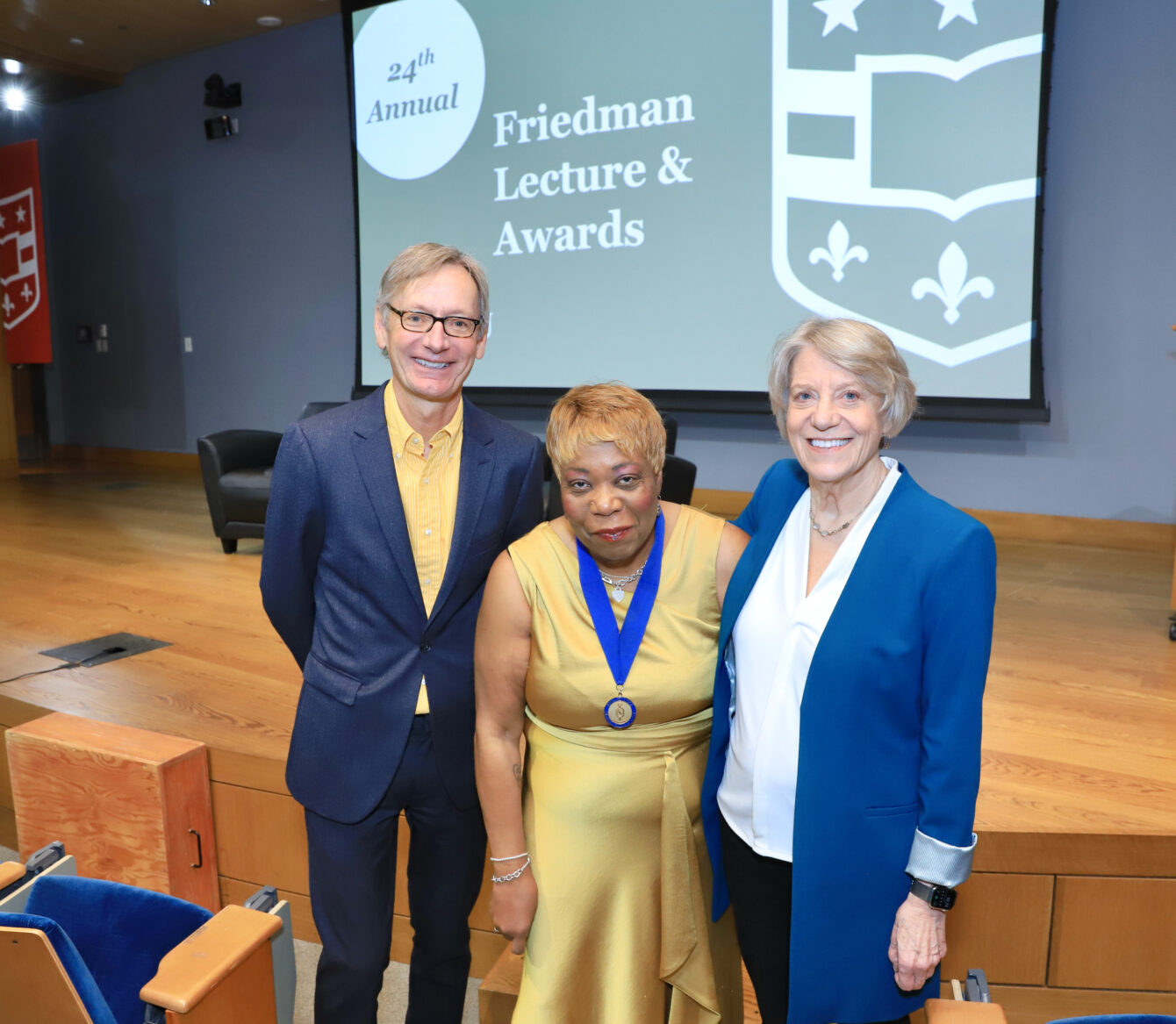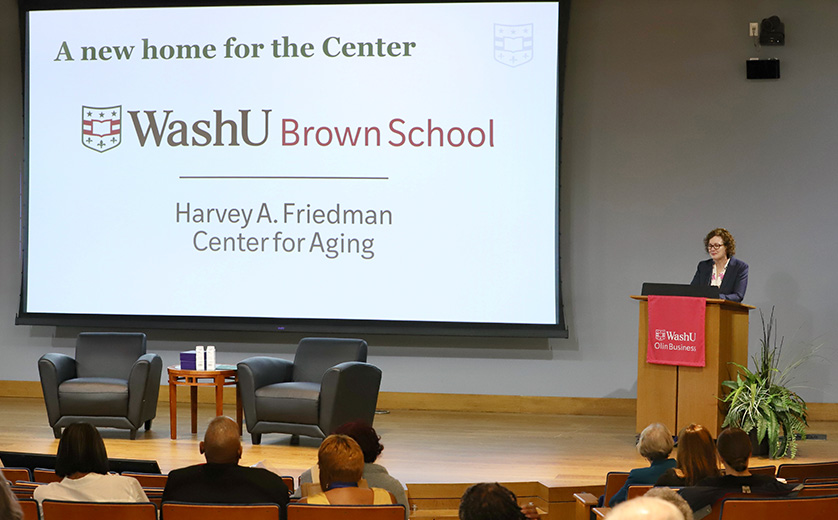The Harvey A. Friedman Center for Aging has officially relocated to WashU’s Brown School from the Institute for Public Health, marking a significant milestone in the center’s ongoing efforts to promote the interests of older adults and aging societies across all disciplines and professions.
Founded in 1998 through the vision of Chancellor Emeritus Mark Wrighton and later supported by an endowment from the Harvey A. & Dorismae Hacker Friedman family, the center has long been a leader in education, research and community engagement related to all aspects of aging. In 2012, Nancy Morrow-Howell, the Betty Bofinger Brown Distinguished Professor of Social Policy at the Brown School, took on leadership of the center, followed by the appointment of co-director Brian Carpenter, professor of psychological and brain sciences in Arts & Sciences, in 2020.
At the 24th Annual Friedman Lecture & Awards on April 4, Dorian Traube, the Neidorff Family and Centene Corporation Dean of the Brown School and Professor, shared her excitement about the move, highlighting the importance of studying aging societies.
“As dean of the Brown School, I am absolutely delighted that this vital center is becoming part of our school,” she said. “Since its inception, the Center for Aging has enjoyed a warm and collaborative relationship with the Brown School, with many shared people, projects and values. I am excited to welcome their groundbreaking work in our school.”

Traube said population aging is a transformative force impacting every aspect of human life, from healthcare and urban design to housing, work, family roles, and intergenerational relationships. She noted that every discipline at WashU plays a role in shaping policies impacting older adults, as well as providing options and resources for families and communities. “Our students across disciplines and professions need to be prepared to contribute to this changing world,” Traube said.
The Friedman Center for Aging is widely recognized for promoting research on aging issues, fostering interdisciplinary collaboration, and offering valuable resources to the broader St. Louis community. Its efforts help prepare students and professionals to be “age-aware,” equipping them with the knowledge necessary to navigate both their careers and their own aging experiences.
As part of the Brown School, the Friedman Center for Aging will continue its crucial interdisciplinary work, said Traube.
“The center provides an invaluable service to the university and the community. It’s the only center at WashU dedicated to interdisciplinary work on topics related to older adults and aging societies.”
Morrow-Howell expressed the same sentiment, emphasizing that the center’s mission will remain unchanged. “We will continue the great work of the center as we plan for new opportunities,” she said. “We’ll be in a very comfortable new social and physical space, with great support from Dean Traube, who believes in the importance of aging research and education.”
